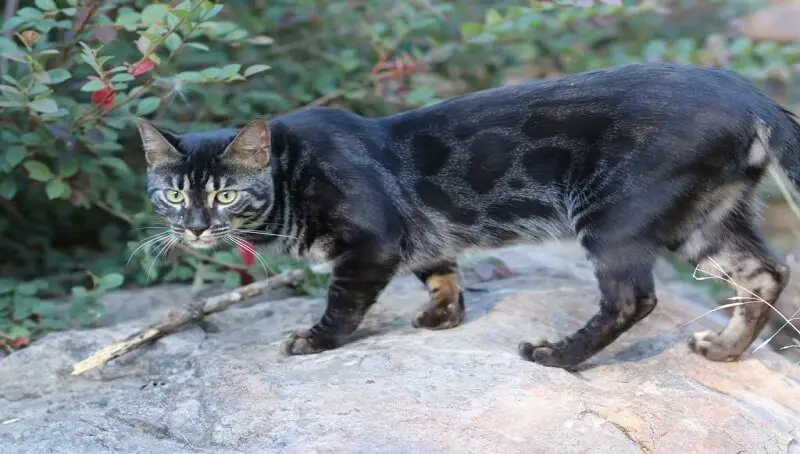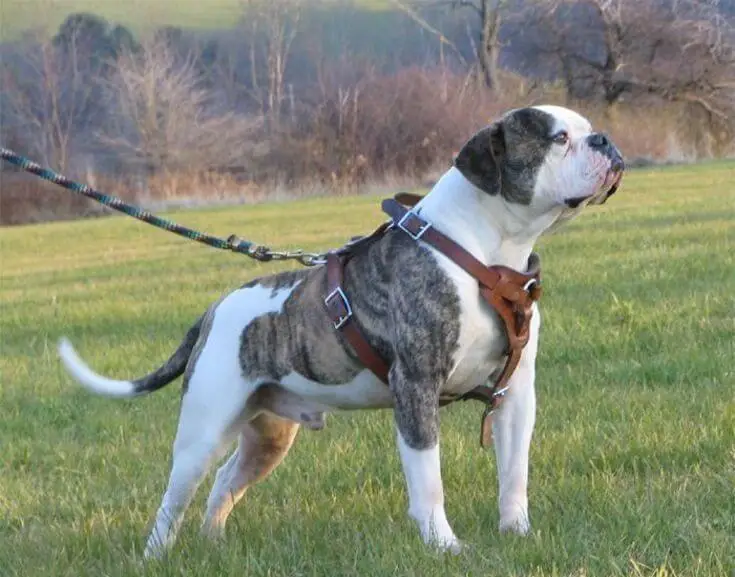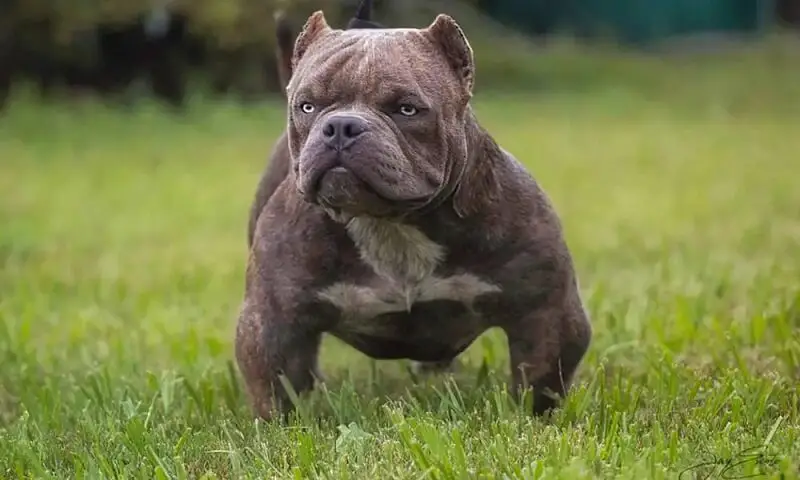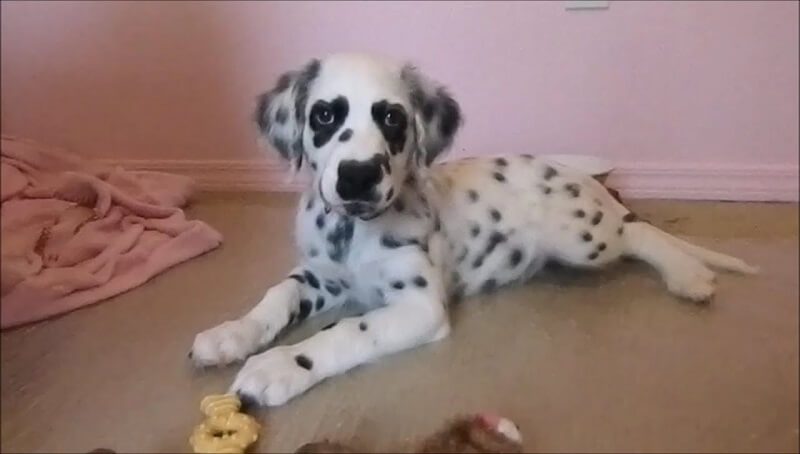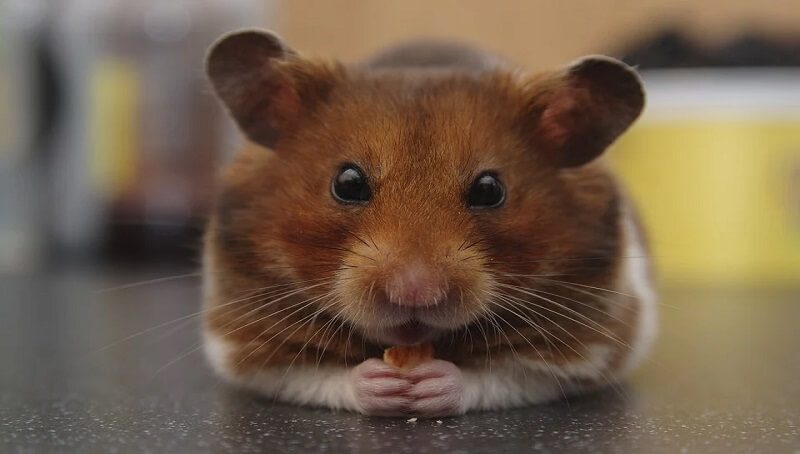Bengals are really amazing cats, having a really exotic look and impressive coat patterns. But did you ever cross roads with a black Bengal? Although very rare, black Bengals are very beautiful and look just like panthers. If you’re one of the people that really want to have one of these black wonders as a pet, then this article will give you some very unique things you should know before taking one to your home. Although amazing pets, Bengals are surely not the type of pets for all kinds of people and families. Bengals will need a very specific type of care because they have some very different needs than your traditional house cat. They are more energetic but if you can keep up with them, they can also be pretty rewarding pets.
What makes the Bengal cat so special?
The Bengal Connection website calls Bengal cats unique and distinctive felines. Bengals are pretty vocal and curious cats, aside from their amazing coat patterns. They will almost always have something to argue about had they will use their whole strength to yell out their problems.
You might also like my articles on tortoiseshell cats, orange tabby cats, and calico cats.
These cats are believed to have descended from the exotic Asian leopard cat, which is probably why they are highly intelligent. They are also very social and also sensitive to human emotions. The Bengal is also known for its strong hunt drive and very playful nature. It seems like they really hate getting bored and are always looking for a way of staying entertained.
How rare is a black Bengal cat?
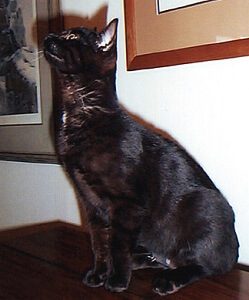 Black Bengals are rarer compared to differently colored cats of the same breed. According to some online statistics, out of all Bengals, only less than 10% percent are actually black. Below you will find six of the most interesting characteristics of these types of cats:
Black Bengals are rarer compared to differently colored cats of the same breed. According to some online statistics, out of all Bengals, only less than 10% percent are actually black. Below you will find six of the most interesting characteristics of these types of cats:
- You will usually have to spend somewhere between $2,500 and $5,000 for a black Bengal, which makes them considerably more expensive than Bengals of other colors. This price difference is mostly due to their color and rarity.
- Experts say that melanism is the root of the black color and this is basically a genetic mutation that will create extra pigmentation, leading to a darker color.
- Black Bengals might still have spots on their fur, usually black or dark brown in color, but sometimes they will almost blend with the base coat color.
- Black Bengals have a similar look to panthers, who also have a coat pattern that might look black at first.
- The combination of a solid base coat color and a black pattern makes the back Bengals look like they have “ghost markings” while in the sun.
- What makes these very interesting cats even more uncommon is the fact that they aren’t approved by most cat breed associations.
Do Bengal-cross cats make good pets?
Experts say that Bengal cats are very desirable pets, mostly due to some very positive traits like loyalty, athleticism, and intelligence. When properly socialized, these cats will get along with all of the family members and other pets as well, due to their highly social nature. Don’t forget that a Bengal will need a lot more attention than other breeds because it is a rather active type of cat. You might say that crossing a Bengal with a more sedentary breed will get you the perfect pet, but keep in mind that you can never know what characteristics the kittens will decide to take from each parent.
Do Bengal cats like to be held?
Although very social and really affectionate in nature, Bengals aren’t the type of cats to be happy when someone picks them up and tries to hold them. These cats will usually fight off any physical restriction and will usually hate to be held or sit on a human’s lap. Whenever you’ll try to restrict the movement of your Bengal it will get uncomfortable. This highly energic cat is also very independent and needs her space.
There are some other ways in which you can actually bond with a Bengal cat to make it feel confident but also comfortable. If you do want to strengthen the bond you have with such a pet, then try to just pat them, play with them, or just spend time around them. Never forget that you’re actually dealing with a very independent cat that won’t like to be held.
The Bengal isn’t for anyone looking for a pet and even the most experienced cat owners might need a little time to adapt to raising this breed. You’ll almost always know when something is wrong with your cat because this breed is very vocal. It will also need a lot of interaction and care to consume its high energy levels.
